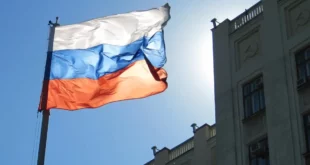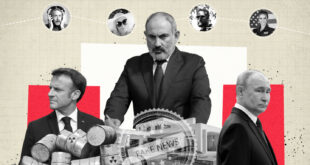 After a guerrilla attack on the village of Muzhichi, members of the “Memorial” human rights centre conducted a painstaking survey of village residents, gathering comprehensive information about the raid. Tamerlan Akiyev, head of Memorial’s Nazran office, has kindly provided an article written specially for Prague Watchdog about the results of the survey.
After a guerrilla attack on the village of Muzhichi, members of the “Memorial” human rights centre conducted a painstaking survey of village residents, gathering comprehensive information about the raid. Tamerlan Akiyev, head of Memorial’s Nazran office, has kindly provided an article written specially for Prague Watchdog about the results of the survey.
The editors
Â
Residents of the village of Muzhichi say that at around 9pm on the evening of July 8 a section of road between their village and the settlement of Alkun was taken under control by a group of armed men. For half an hour these men stopped passing motor vehicles, three of which they hijacked. At about 9.30pm two or three of the guerrillas arrived in the village in one of the vehicles. They openly drove around the streets, asking people if they knew the whereabouts of two local residents – Ruslan Doliyev and Khasan Torshkhoyev.
Â
Towards 10pm another group of armed men, 10-15 in number, moved into Muzhichi. They arrived in a covered Gazelle truck which they had taken from a local resident, Mukharbek Bartinkhoyev. The guerrllas drove up to a store located on Aksanov Street, the village’s main thoroughfare. The store’s owner is Isa Doliyev.
Â
At that moment a group of youths was standing near the building. The guerrillas immediately made them lie down on the ground, at gunpoint. Then the guerrillas went inside the store. There they found another two youths and Khasan Torshkhoyev, a local school teacher, who was one of the men they were looking for. At first they also made everyone who was in the sales area lie down on the floor, and then took Torshkhoyev out through the back entrance into the inner courtyard of Dolyiev’s house, which adjoins the store. There, without much ceremony, they shot Torshkhoyev. One of the youths who witnessed all this says that before shooting Torshkoyev the guerrillas told him that he had been sentenced to death for informing.
Â
Then the guerrillas went up the stairs into Isa Doliyev’s house. They were looking for his son Ruslan, who was absent at the time. The assailants locked all the family into one of the rooms, and then went outside. At that moment, Ruslan Doliyev drove up to the house in a Gazelle van. He was immediately dragged out of the van, taken a short distance away and shot on the same charges of informing.
Â
Residents say that the most of the guerrillas were young, no more than 25 years old, and that they behaved in an arrogant, free-and-easy manner. They wore new camouflage uniform, and shouted slogans like: “We must fight the authorities!”, “President Murat Zyazikov must be killed!”. They called on the young people to wage jihad, chanted “Allahu Akbar!” and fired shots in the air. Local resident Ibragim Chapanov, an elderly man (aged about 70) took them to task. In response to this one of the guerrillas fired a round from his automatic rifle at him. The man was struck by three bullets, and he died of his wounds on the spot.
Â
The guerrillas were in the village for a total of no more than twenty minutes. Their plan complete, they left the village in three motor vehicles – two hijacked Gazelles and a Volga belonging to the slain teacher’s brother – and headed south towards the settlement of Alkun. On the following day the police found the vehicles abandoned near the forest. The police officers did not reach the village until morning, when they set up checkpoints on the roads leading in and out of the place, though no local residents were detained.
Â
The local residents were shocked by the murders, which to them appeared unmotivated and cruel. They are certain that the victims of the guerrillas were absolutely innocent of the actions imputed to them and that they had no connection either with the authorities or with the law enforcement agencies. Although Ruslan Dolgiyev had once been a police officer, he resigned from the interior ministry forces two years ago.
Â
It is extremely unusual in Ingushetia for armed detachments to enter towns and villages. While it frequently happens in neighbouring Chechnya, the Ingush underground resistance employs different tactics, organizing local, point target attacks on military servicemen and police. The underground still observed an unwritten mandatory ban on the waging of hostilities in places where people live. In all the time that “Memorial” has been working in Ingushetia I can remember at most one or two cases of such incursions, including the famous attack on Nazran by Shamil Basayev.
Â
It is also surprising that the guerrillas raised their hands against an unarmed elderly man for making a critical remark. To judge from the eyewitness accounts, the attackers’ behaviour was extremely strange. Some eyewitnesses told us that one of the guerrillas wore a long-haired wig. That is also a very unusual detail in the description of men fighting with the underground. It seems that now they not only disguise themselves with masks, but also with artificial hair. At one point one of the armed men took off his wig, and then put it back on again. He was apparently too hot. Several village residents saw this.
Â
The invaders knew their way around the village very well, and seemed to know where to go, who they were looking for, and where the homes of those they wanted – Doliyev and Torshkhoyev – were located. Moreover, one of the guerrillas personally identified Torshkhoyev. In other words, Torshkhoyev was not a victim chosen at random. He was an ordinary rural schoolteacher, and his accuser must have had some special grievance against him.
Â
I assume that the attackers’ demonstrative cruelty and aggression were provoked by the death of an Ingush underground leader. On Saturday, June 5 police killed four armed guerrillas in the city of Karabulak. All had taken part in the attack on the republic in 2004, and were on the police wanted list. Identified among them was one of the most notorious and dangerous – according to the Russian interior ministry – commanders of the Salafist movement, Khas-Magomet Bogatyrev. He is known not to have been a rank-and-file guerrilla, and was in fact the leader of the middle link in the chain of command. So it would be logical to suppose that the guerrillas had decided to avenge the death of their comrade.
Â
Source: Prague Watchdog
Kavkaz Center
 Eurasia Press & News
Eurasia Press & News



